On Thursday Oct 25, Karen King gave a lecture at Carleton University in Ottawa called “Controversies over Sexuality and Marriage among Early Christians: What a New Papyrus Fragment Can (or Can’t) Tell Us.” While Prof. King did little to respond to the many criticisms that have circulated as to the authenticity of the fragment, she did explain that her initial skepticism nearly prevented her from working on this document at all. Her belief in its authenticity only gradually emerged after a long period of reflection. She was equally emphatic that even if the papyrus is judged to be authentic, it provides absolutely no evidence about the historical Jesus’ marital status. This last point, she lamented, has been completely overlooked in recent media coverage and largely lost on the public. The reality of this situation was amply demonstrated by the fact that, in spite of a very nuanced presentation about early Christian debates about marriage and sexuality (to which this fragment may contribute a small piece of evidence), questions from the audience largely belaboured the point about whether or not this text proves that Jesus was wed.
In my view, the question of whether Jesus was actually married is the least interesting aspect of this whole controversy. Ironically, Karen King’s own contextualization of the fragment in comparison with other non-canonical texts such as the Gospel of Thomas and the Gospel of Philip make the superficial historical interpretation the least plausible, given what we know about the evolution of early Christian debates. The real interest of this fragment, assuming its authenticity, is to underscore the immense and ongoing diversity of opinions within the early church during the 2nd and 3rd centuries. This sophisticated analysis, which scholars of early Christianity have been building for over a century (and which is arguably more offensive to conservative Christian sensibilities than Jesus’ marriage), is simply not part of the general public’s imagination. The impression, bolstered by many in the often equally conservative Biblical Studies community, that early Christian history is only about Jesus continues to shape the public’s perception of new textual and archaeological discoveries. Clearly, the scholarly community has failed to communicate the fruits of its dynamic interdisciplinary research to the general public. At the same time, however, it has increasingly become the norm for prominent scholars to submit new discoveries to the court of public opinion before a thorough international scholarly analysis is allowed to take place. Book deals and television rights now take precedence over peer-review and patient research.
I am also disturbed at the way in which the tenor of the blogosphere debate over the fragment has degenerated from a healthy degree of skepticism over prematurely publicized results to blatant displays of academic elitism and ad hominem attack. Those critical of the fragment are labelled as either Vatican apologists or dismissed as third-rate scholars who presumptuously dare to challenge the wisdom of the Ivy League. Such rhetoric does nothing to advance the cause of Early Christian Studies, a field whose credibility is seriously weakened when its leading lights put media spin before methodological rigor.
Timothy Pettipiece is Sessional Instructor for Carleton’s College of Humanities and the University of Ottawa’s Department of Classics and Religious Studies. He received his Hon. BA in Classical Languages from the University of Guelph in 2000, and then went on to complete an MA in Religion and Culture from Wilfrid Laurier University in 2002, where he wrote a thesis on the Greek fragments of Heracleon, the earliest known commentary on the Gospel of John. He received his doctorate in Religious Studies from Université Laval in 2006, where he studied numeric patterning in Coptic Manichaean literature at the Institut d’études anciennes . He is interested in the religious culture of Late Antiquity in both the later Roman and Sasanian Persian contexts, with a specialized focus on the translation and interpretation of texts in Coptic, Greek, and Syriac. He is currently writing a biography of Mani and a commentary on Manichaean fragments found in Titus of Bostra. SOURCE









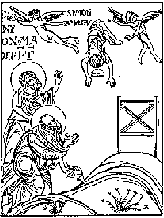




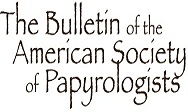
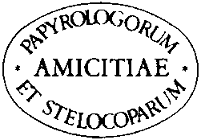
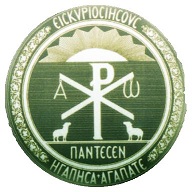





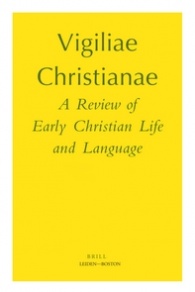






Reblogged this on Marius Cruceru and commented:
Din nou despre “soția” lui Isus și ideologizarea studiilor referitoare la creștinismul timpuriu
Tim, Thanks for this discussion. You’re closing points are significant, in that they point out a growing problem in the study of early Christianity: the tedious and methodical work of scholarship giving way to the instantaneous and sensational media craze that has become the public presentation of our work. Point well taken (and one I’ve been concerned about throughout this whole GosJesWife debate). Your point applies not only to King’s (and HTR’s) publicity of this article, but also of those who have used the blogosphere to challenge King. Both sides, it seems, are going for the media craze. A small qualification, however, needs to be made in regard to King’s article. The study did go through a peer review process (and if it is anything like what I went through when I published in HTR, it would have been one of the most rigorous review processes among scholarly journals). King did take this fragment to three well-trained specialist to authenticate the fragment, took the time to study and do her homework. Her article is polished, carefully qualified where needed, and grounded in solid scholarship. Her detractors, however, have not gone through a peer review process, have not taken the months needed to do the careful research and writing of a scholarly article. They have not published their findings in major journals (or even mid-level journals) in the field. They have simply “published” them on webpages within days of the announcement. And the media has treated them as authoritative. This does not bode well for our field. Personally, I’m not convinced that the fragment is ancient (it could very well be a forgery, and there are some good arguments out there for the forgery argument; to me, the key is that line 1 merges two sentences from Gospel of Thomas that lie on two sides of a large lacuna in the Thomas manuscript – this suggests that the scribe [ancient or modern] had access to this particular ms post-discovery; an argument much better than Watson line break argument, which is very weak in my opinion), and even if an ancient work I’m not convinced that King has correctly translated and interpreted the fragment (I think it is far less sensational than most treat it). But what is most intriguing is the *scholarly* reaction to this fragment more so than the fragment itself. What does that reaction tell us about the discipline and the direction that we are headed? As someone working in the field, I am concerned that we are increasingly slipping into a fixation on academic “celebrities” rather than academic excellence.
While, admittedly, comments (following Prof. King’s invitation) included some nonsensical and ill-tempered words, before declaring “the failure…” it may be worth noting and appreciating that there were also several insightful and helpful comments.
What is wrong with “media craze”? If we (general public) take away bits and pieces to believe what we want to believe then we are behaving like humans have always behaved. The good news is that our beliefs can change with new information. We have the ability to learn.
Hi Susan, Yes we can (and should) always learn. And I fully agree that scholars need to work harder at connecting with the broader public (i.e., beyond our disciplinary boundaries and our classrooms). The Internet, including open access publishing (as one model in publishing), certainly encourages such bridge building. The concern (for me at least) is the way we do that connection. Are we misinforming? Are we really in a dialogue with others or just ourselves? I’m particularly concerned about the question as to what is gained and for whom when we create these media crazes. When scholars are simply engage in reputation and ego boosting, when we slip into journalistic trends rather than working with journalists to better inform the public, then we aren’t really helping people learn about things we do. I’m also wondering about the specific topics that hit the public and what doesn’t. Gospel of Judas, Gospel of Jesus’ Wife, and the whole James the brother of Jesus ossuary thing all grabbed wide media attention. But my 2009 article on ancient wet nursing practices as interpretation key to the nursling metaphor in 1 Peter (though positively cited by some other scholars) made no media craze. I was never interviewed about my paraenetic reading of the Interpretation of Knowledge (also an HTR article), nor has the conflicting readings of the Gospel of Truth between myself and J. Magnusson made any “splash” on CNN. I’ve alas I’ve never made it to the Jon Stewart show. The reason? My work is not sensational nor (for the general public) potentially controversal, but is the normal work that academics do. It’s tedious, mundane, and for me delightful and (hopefully) it makes a contribution to scholarship.(And forgive my using myself as an example here.) The way things are presented, largely in controversial dichotomies with larger than life impact potential, while not followed up on by the media when the meticulous work continues further on (e.g., Gos. Judas scholarship), all suggest to me that (at least some scholars) are taking on or being given celebrity status for fairly superficial work, rather than, as in previous generations of scholarship, being deemed key thinkers for doing outstanding scholarship. As teacher-scholars, we need to connect to our broader public (including our students), but not at the expense of actual critical work. I just think we can do better.
Pingback: Around the Blogosphere: The Varieties of Fundamentalisms
Pingback: Weekly Meanderings